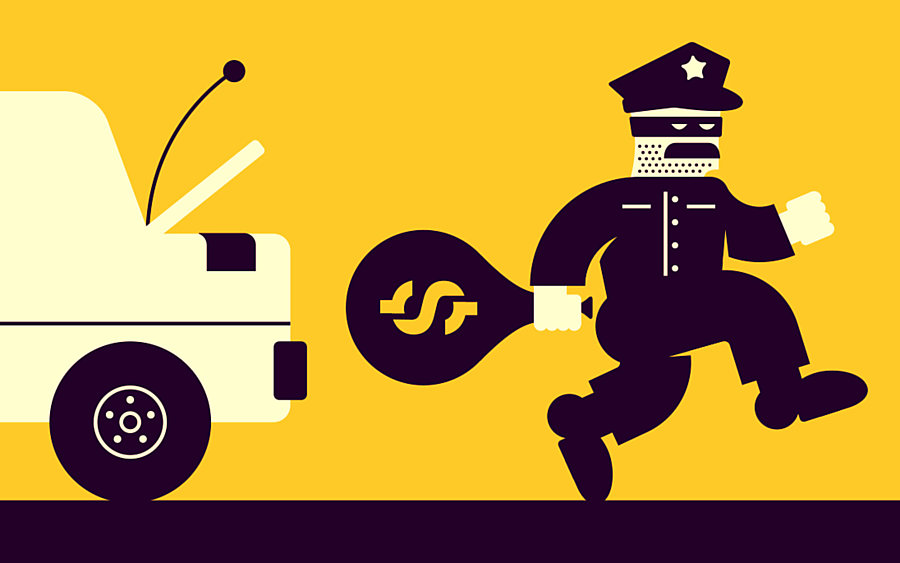Civil Asset Forfeiture Undermines Free Enterprise and Human Dignity
What does it mean to have private property and the rule of law? Imagine the police came to your home, arrested you based on suspicion of criminal activity, and in the process seized cash from your home or your car from your driveway. But suppose it was a mistake. Suppose upon reviewing the evidence you received no criminal charges and were released. You’d expect to get your property back, right?
The answer is that in Alabama you probably wouldn’t, based on the data from a new report on Civil Asset Forfeiture by the Alabama Appleseed Center for Law & Justice and the Southern Poverty Law Center. After gathering information on over a thousand of Civil Asset Forfeiture cases, where Alabamians’ money and property were seized in 2015, these organizations found that a fourth – about 270 people – had property seized without charges being filed. When those same people tried to get their possessions back, 84% of those cases were won by the state. In other words, you don’t just forfeit your property rights if you are guilty of a crime. You don’t even have to be charged with a crime. Your private property can be seized on the mere suspicion of criminal activity, and you are unlikely to get it back, even if it was all an error.
Currently in Alabama agencies aren’t required to track or report how much they take under Civil Asset Forfeiture, or how they use what they take, but reform is possible. In Alabama authorities can use the law to augment their budgets, essentially seizing their way to bigger budgets. Unfortunately, Alabama is not unique. While the Institute for Justice rates Alabama as one of the worst in the country, only seven states direct asset forfeiture proceeds away from law enforcement budgets. Such reforms would be an improvement in most states, but an even better reform would be to abolish Civil Asset Forfeiture and replace it with Criminal Asset Forfeiture, as Nebraska and New Mexico have done, where the property is only kept by the state in the case of a conviction. When law enforcement agencies can keep the assets they seize, they have a bad incentive to seize first and determine criminal involvement later.
Why does Civil Asset Forfeiture exist? Its origins in the U.S. go back to the early 19th Century, when the Federal government would confiscate pirate ships and their cargo. Even if no one on board could be charged with a crime, the Supreme Court ruled that the property could be seized under the reasoning that the property had facilitated criminal activity. This probably makes sense for some situations, but local authorities have taken it to a new level. Cash, homes, land, and cars are frequently seized upon suspicion of their involvement in criminal activity. Even when criminal charges are dropped, or the individual accused of a crime is found innocent, they usually don’t get their property back.
It’s no picnic even for those who do recover their property. The Appleseed/SPLC report features some individual cases, including the story of Jamey Vibbert, a Dothan car dealer who had $25,000 seized directly from his bank account, for selling vehicles involved in a drug investigation. He had titled those cars to third parties, rather than the buyer. Doing so is perfectly legal, but the authorities found it suspicious, and that’s enough for them to seize the cash he received for the cars. When Vibbert explained in court that it’s common for people to buy cars for third parties, the Judge agreed, noting that he had just purchased a car and titled it in his son’s name. He found Vibbert innocent, but by then most of the damage had been done. Vibbert did get his money back, minus legal fees, but in the meantime he had lost his business, his home, and his reputation. Compared to most, his story has a better ending.
Private property rights are the foundation of free enterprise. Without property rights trade will be suppressed and pushed underground. Growth is strangled and good people resort to dealing with corrupt officials and black market sellers just to get through their lives. We are all made worse off when authorities have excessive discretion, and without proof of criminal guilt, no one should have their hard-earned possessions taken away.











